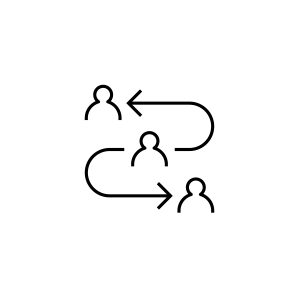Supporting my IBM colleagues in inventing

2016-2019 Master Inventor designation for patent mentoring and serving as a patent evaluator. I keep missing the nomination deadline to renew this credential.

Led a talented group of women in 2019 to research the "state of the art" in Artificial Intelligence (AI) and Business Intelligence (BI) with healthcare data. Published a toolkit via the IBM Academy of Technology.

Evaluated patents from 2008 to present on user interface technologies.
Co-led the Industry Solutions and Services patent evaluation team from 2013 - 2016.

In 2018, spoke on a panel about patenting at the North Carolina Women in Technology (NCWIT) Conference sponsored at the IBM site.

Led folks with 1-5 years at IBM through the patent process via the Jumpstart program. Drafted and presented two patent ideas with 2020 team. 2021 team voted Most Likely to Succeed with their idea.

In 2017, with other design colleagues who were Master Inventors, spoke to 143 participants of a "Accel" patent mentoring event. In 2018, facilitated "Ready, Set, Go Innovate!"
With IBM's support, I've invented...
Helping sight-impaired people to recognize analytic patterns on maps
System and method to give unsighted users a cognitive capability for achieving geospatial insights (2018). A novel way to convey geospatial awareness to unsighted users. Many solutions exist to guide them from point to point with sound and touch, but fall short of enabling these users to grasp analytic insights from the relationship of several data points on a map (unless the user has an unusually great memory).

Inferring which data visualization to display ("chart magic")
Chart generation baed on user control inferences (2012). Imagine that the user selects some data of interest, using typical UI controls such as drop-down lists and radio buttons. Without knowing anything about the actual contents of the UI controls and without asking the user for any more input this invention teaches practitioners how to generate and display an informative chart of an appropriate chart type, perhaps as a default starting point for users to customize.

Helping people to focus on items of interest by time and location
Visual domain navigation (2013). A magic lens solution with novel aspects geared to time and space for a geospatial system.

Protecting a person's keystrokes with no effort or disruption to them
Middleware sign-on (2005). Cited by Microsoft, Google, and Samsung. Middleware thwarts keystroke attacks during sign on by generating a bunch of false keystrokes (chatter) that help to disguise the real keystrokes. This is invisible to the user. Only the middleware knows which keystrokes are genuine.

Saving people time figuring out which info applies to their software solution
Customized documentation based on actual configuration values (2007). Cited by Dell. Software solution installation routines are capable of gathering system configuration data. Why not use that data to generate customized documentation for using the software?

People shouldn't have to enter redundant data selections!
Coordinated geospatial, list-based, and filter-based selections (2010). Cited by Nintendo and eBay. Users should be able to tell the software just one time which data interests them. With this invention, the system is smart enough to make coordinated updates to everything the user sees, in response to the user's input. For example, when a water utility crew scheduler draws a polygon around some work orders on the map to select them, the deselected work orders on the map should be reflected in the list, too.